| |
|
|
|
|
|
|
|
|
|
|
| |
| |
 |
|
| |
田润德
编译文/图 2020-04-13
20:36 |
|
| |
|
|
|
|
| |
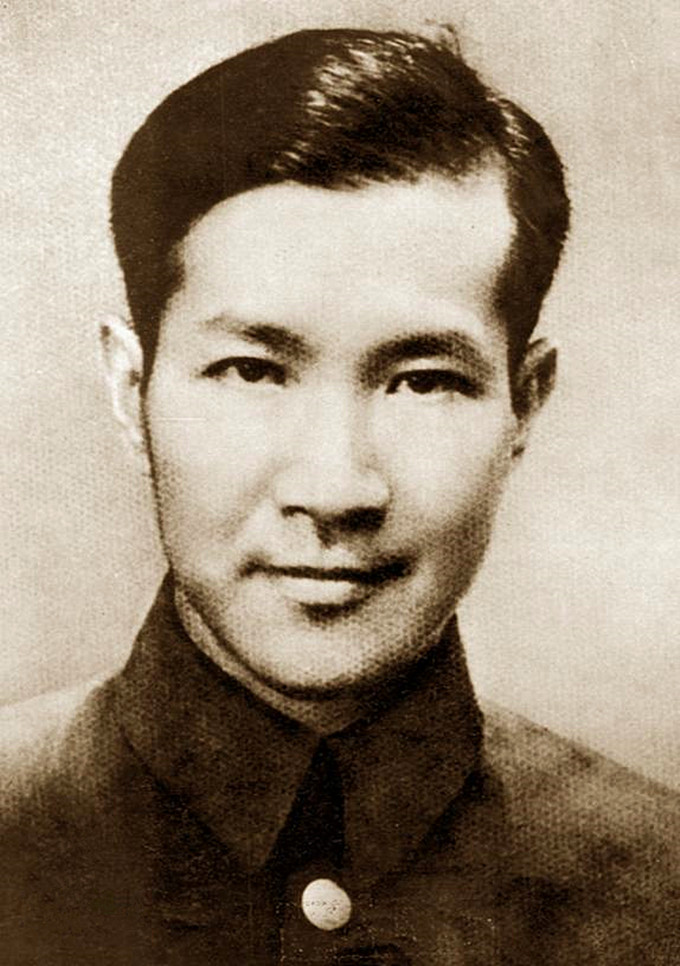 |
|
|
|
| |
人民音乐家冼星海( Sinn Sing Hoi
1905-1945) |
|
|
|
| |
|
|
|
|
| |
严良堃指挥中央乐团等合唱团演出《黃河大合唱》(完整八個樂章)
|
|
|
|
| |
第一章 《黄河大合唱》第二章 《黄河颂》4分第三章 《黄河之水天上来》9分第四章
《黄水谣》15分第五章《河边对口曲》19分第六章 《黄河怨》22分第七章《保卫黄河》28分第八章 《怒吼吧 黄河》31分朗朗 《钢琴协奏曲》
CCTV音樂廳 2005新年音樂會黃河大合唱作詞:光未然作曲:冼星海 指揮:嚴良堃(影片誤為嚴良坤) 朗誦:鮑國安(著名演員)
中央歌劇芭蕾舞劇院合唱團中央交響樂團合唱團中國交響樂團附屬少年及女子合唱團中央歌劇芭蕾舞劇院交響樂團總政交響樂團。 |
|
|
|
| |
Chapter 1 Yellow River
cantata
Chapter two: ode to the Yellow River
The third chapter "the Yellow River water from the sky" 9 minutes
Chapter four "huangshui rumor" 15 cents
Chapter five "the song of the river" 19 minutes
The sixth chapter "the Yellow River complaint" 22 minutes
Chapter 7 "defending the Yellow River" 28 minutes
Chapter 8 roar the Yellow River by lang lang piano concerto by lang lang
2005 New Year concert at CCTV concert hall
Yellow River cantata
Lyricist: not yet
Composition: xian xinghai
Conductor: yan liangkun (the film was mistaken for yan liangkun)
Reading: bao guoan (famous actor)
Choir of the central opera ballet theatre
The choir of the central symphony orchestra
The China symphony orchestra is affiliated with the youth and women's
chorus
Orchestra of the central opera and ballet theatre
General administration symphony orchestra |
|
|
|
| |
|
|
|
|
| |
音乐历史上的今天
1939年4月13日冼星海的《黄河大合唱》延安陕北公学大礼堂举行了首演。
一九三九年四月十三日,在延安陕北公学大礼堂举行了一场隆重的音乐会。会上由邬席零指挥着抗敌演剧第三队,首次演唱了张光年作词、冼星海作曲的《黄河大合唱》。冼星海从三月二十六日拿到歌词至三月三十一日,仅用了六天时间,就在鲁艺旧址的一个小窑洞里,借着油灯的光亮,完成了这部震动中外的作品(包括它的合唱及乐队总谱)。
同年五月十一日,在鲁艺成立一周年纪念音乐会上,星海又亲自指挥鲁艺师生六十人组成的合唱队,进行了演出,由一个二十多人组成的中西混合乐队伴奏。当时延安缺乏低音乐器,因此低音声部是以一个洋铁桶改成的“低音大胡”奏出的,但是演出效果却极为成功。这一天,在延安的毛主席等中央领导同志都出席了音乐会,当演出结束时,毛主席非常激动,站起来连说了几声:好!好!
冼星海(1905年6月13日-1945年10月30日),男,曾用名黄训、孔宇,祖籍广东广州府番禺县(现属广州市南沙区榄核镇),出生于澳门,中国近代著名作曲家、钢琴家,有“人民音乐家”之称,其作品中《黄河大合唱》最广为人知。1926年入北京大学音乐传习所,1928年进上海国立音专学习音乐。1929年去巴黎勤工俭学,师从著名提琴家帕尼·奥别多菲尔和著名作曲家保罗·杜卡斯。1935年回国后,积极参加抗日救亡运动。1938年赴延安,后担任鲁迅艺术学院音乐系主任。1939年6月,加入中国共产党
[1] 。1945年10月因劳累和营养不良,他的肺病日益严重,最后冼星海病逝于莫斯科。
今日视频:1、严良堃指挥
在京三大合唱团交响乐团联合演出《黃河大合唱》(完整八個樂章); 2、严良堃指挥中國中央樂團演出冼星海《黄河大合唱》。 |
|
|
|
| |
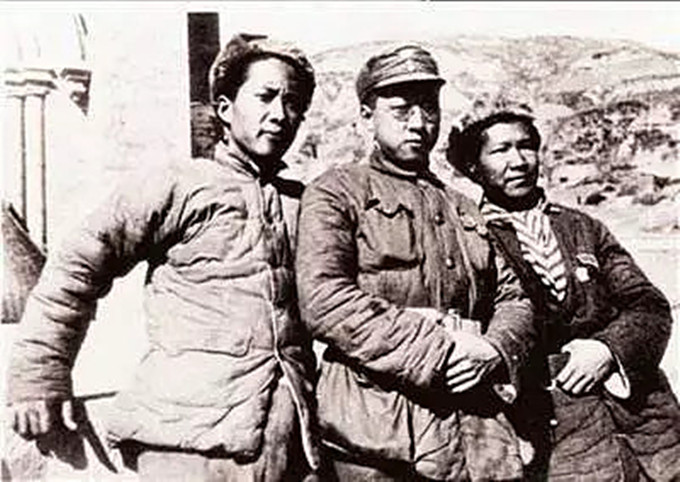 |
|
| |
冼星海和同志们在延安时的合影 |
|
|
|
| |
|
|
|
|
| |
Today in the
history of music
On April 13, 1939,
Sinn Sing Hoi
's Yellow River
chorus was first performed in the auditorium of shannbei public school
in yan 'an.
On April 13, 1939, a grand concert was held in the auditorium of
shannbei public school in yan 'an.At the meeting, wu xi-zero directed
the third team of the anti-enemy drama, and sang the Yellow River chorus
composed by zhang light-year and xian xinghai for the first time.From
March 26 to March 31,
Sinn Sing Hoi
took only six days to complete the
music (including the chorus and the score of the band) that shocked
China and the rest of the world in the light of an oil lamp in a small
cave in the old lu yi site.
On May 11 of the same year, at the concert to commemorate the first
anniversary of the establishment of lu yi, xinghai personally directed
the choir of 60 teachers and students of lu yi and performed the
performance, accompanied by a Chinese and western mixed band composed of
more than 20 people.At that time, there was a lack of bass instruments
in yan 'an, so the bass part was played in the form of "bass hu" changed
from a tin barrel, but the performance was extremely successful.On this
day, chairman MAO and other central leaders in yan 'an attended the
concert. When the performance ended, chairman MAO was very excited and
stood up and said several times: good!Good!
Sinn Sing Hoi
(June 13, 1905 - October 30, 1945), male, former name Huang
Xun, Kong Yu, originally from guangdong office in guangzhou panyu county
(now at guangzhou nansha district LanHe Town), was born in macau,
China's modern composer, pianist, is regarded as "people's musician",
his works in the most well known of the Yellow River chorus.In 1926, he
was admitted to the music school of Peking University, and in 1928, he
was admitted to the Shanghai national conservatory to study music.In
1929, he went to Paris to study under the famous violinist panie
oberdufre and the famous composer Paul ducasse.After returning to China
in 1935, he took an active part in the anti-japanese and national
salvation movement.He went to yan 'an in 1938 and later served as the
director of the music department of lu xun art institute.In June 1939,
he joined the communist party of China.In October 1945, due to fatigue
and malnutrition, his lung disease became increasingly serious, and xian
died in Moscow.
Today's video: 1. Yan liangkun conducts the symphony orchestra of three
choirs in Beijing to jointly perform the Yellow River cantata (complete
with eight movements);2. Yan liangkun directs China central orchestra to
perform the Yellow River cantata by
Sinn Sing Hoi
. |
|
|
|
| |
|
|
|
|
| |
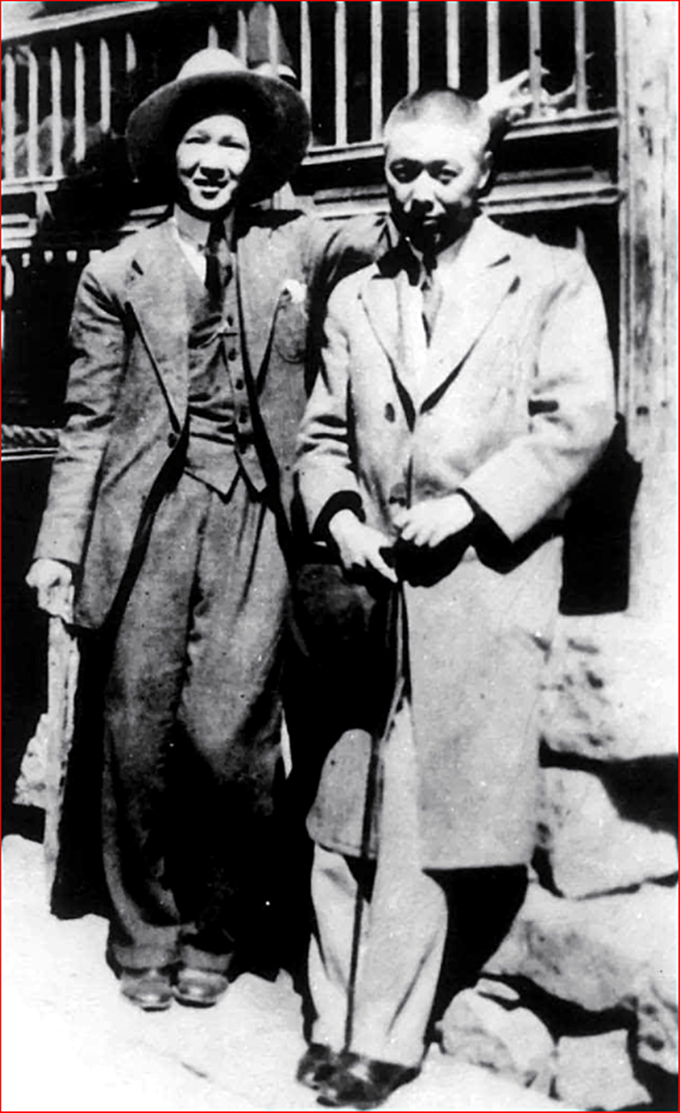 |
|
|
|
| |
冼星海与田汉 |
|
|
|
| |
冼星海在《我学习音乐的经过》一文中回忆了自己如何在巴黎不惧穷困潦倒的生活,坚持勤工俭学,取得巴黎音乐学院的优秀的毕业成绩:
我曾在国内学音乐有好多年。在广州岭南大学教音乐的时候,感到国内学音乐的环境不方便,很想到法国去。同时,我奢想把我的音乐技巧学得很好,成功为“国际的”音乐家。正在考虑之际,凑巧得×××兄的帮忙,介绍了他在巴黎的先生奥别多菲尔(Paul
Oberdoeffer)给我,于是我下了很大的决心,不顾自己的穷困,在1929年离开祖国到巴黎去。到了巴黎,找到餐馆跑堂的工作后,就开始跟这位世界名提琴师学提琴。奥别多菲尔先生,过去教×兄时,每月收学费二百佛郎(当时约合华币十元左右)。教我的时候,因打听出我是个做工的,就不收学费。接着我又找到路爱日。加隆(Noel
Geallon)先生,跟他学“和声学”、“对位学”、“赋格曲”(Fugue,一种作曲要经过的课程)。加隆先生是巴黎音乐院的名教授,收学费每月也要二百佛郎,但他知道我的穷困后,也不收我的学费。我又跟“国民学派”士苛蓝港。多隆姆(唱歌学校——是巴黎最有名的音乐院之一,与巴黎音乐院齐名,也是专注重天才。与巴黎音乐院不同之处,是它不限制年龄。巴黎音乐院则只限廿岁上下才有资格入学。此外,它除了注意技巧外,对音乐理论更注意)这个学校的作曲教授丹地(V.d’Indy)学作曲,他算是我第一个教作曲的教师。
以后,我又跟里昂古特(Lio neourt)先生学作曲。同时跟拉卑(La
bey)先生学指挥。这些日子里,我还未人巴黎音乐院,生活穷困极了,常常妨碍学习。
我常常在失业与饥饿中,而且求救无门。在找到了职业时,学习的时间却又太少,在此时期我曾经做过各种各样的下役,像餐馆跑堂,理发店杂役,做过西崽(boy),做过看守电话的佣人和其他各种被人看作下贱的跑腿。在繁重琐屑的工作里,只能在忙里抽出一点时间来学习提琴,看看谱,练习写曲。但是时间都不能固定,除了上课的时间无论如何要想法去上课外,有时在晚上能够在厨房里学习提琴就好了,最糟的有时一早五点钟起来,直做到晚上十二点钟。有一次,因为白天上课弄得很累,回来又一直做到晚上九点,最后一次端菜上楼时,因为晕眩,连入带菜都摔倒,被骂了一顿之后,第二天就开除了。我很不愿把我是一个工读生的底细告诉我的同事们,甚至连老板也不告诉,因此,同事对我很不好,有些还忌刻我,在我要去上课的那天故意多找工作给我做,还打骂我,因此我也常打架。有一个同事是东北人,他看见我学习时,总是找出事来给我,譬如说壁上有丝尘,要我去揩等等。但我对他很好,常常给他写信回家(东北),他终于感动了,对我特别看待,给我衣服穿等等。可是我还不告诉他我入学的事。
我失过十几次业,饿饭、找不到住处,一切的问题都来了。有几次又冷又饿,实在支持不住,在街上软瘫下来了。我那时想大概要饿死了。幸而总侥幸碰到些救助的人,这些人是些外国的流浪者(有些是没落贵族,有些是白俄)。大概他们知道我能弹奏提琴,所以常在什么宴会里请我弹奏,每次给一二百佛郎,有时多的一千佛郎。有对白俄夫妇,已没落到做苦工,他们已知道了劳动者的苦楚,他们竟把得到的很微薄的工资帮助我——请我吃饭。我这样的过朝挨夕,谈不上什么安定。有过好几天,饿得快死,没法只得提了提琴到咖啡馆、大餐馆中去拉奏讨钱,忍着羞辱拉了整天得不到多少钱,回到寓所不觉痛哭起来。把钱扔到地下,但又不得不拾起。门外房东在敲门要房金,如不把讨到的钱给他,就有到捕房去坐牢的危险(其实不是为了学习,倒是个活路)。有一次讨钱的时候,一个有钱的中国留学生把我的碟子摔碎,掌我的颊,说我丢中国人的丑!我当时不能反抗,含着泪,悲愤得说不出话来——在巴黎的中国留学生很不喜欢我,他们都很有钱,还有些领了很大一笔津贴,但却不借给我一文。有时,我并不是为了借钱去找他们,但他们把门闭上,门口摆着两双到四双擦亮的皮鞋(男的、女的)。
我忍受生活的折磨,对于学音乐虽不灰心,但有时也感到迷惘和不乐,幸而教师们肯帮助我,鼓励我,在开音乐会演奏名曲时,常送我票。奥别多菲尔先生在一个名音乐会里演他的提琴独奏(ThaiS)时,不厌我穷拙,给我坐前排。这些对我意外的关怀,时时促使我重新提起勇气,同时也给我扩大了眼界。我的学习自己觉得逐渐有些进步,我写了好多东西,我学习应用很复杂的技巧。
在困苦生活的时日,对祖国的消息和怀念也催迫着我努力。我很喜欢看法国国庆节和“贞德节”的大游行。这两个节是法国很大的节日,纪念的那天,参加的人非常拥挤。有整齐的步兵、卫队、坦克趴、飞机队等。民众非常热烈地唱国歌,三色国旗飘扬。我每次都很感动。在1932年,东北失陷的第二年,到那些节日,我照例去看游行。但是那次群众爱护他们祖国的狂热,和法国国歌的悲壮声,猛烈地打动了我。我想到自己多难的祖国,和三年以来在巴黎受尽的种种辛酸、无助、孤单、悲痛、哀忿、抑郁的感情混合在一起,我两眼充满了泪水,回到店里偷偷地哭起来。在悲痛里我起了应该怎样去挽救祖国的危亡的思念。
我那时是个工人,我参加了“国际工会”。工会里常放映些关于祖国的新闻片和有一些照片。我从上面看到了祖国的大水灾,看到了流离失所、饥饿死亡的同胞;看到了黄包车(人力车)和其他劳苦工人的生活;看到了1927年大革命失败后党派分裂,国民党的大屠杀,……这些情形,更加深我的思念、隐忧、焦急。
我把我对于祖国的那些感触用音乐写下来,像我把生活中的痛楚用音乐写下来一样。我渐渐把不顾内容的技巧(这是“学院派”艺术至上的特点)用来描写、诉说痛苦的人生、被压迫的祖国。我不管这高尚不高尚。在初到法国的时候,我有艺术家的所谓“慎重”,我对于一个创作要花一年的功夫完成,或者一年写一个东西,像小提琴及钢琴合奏的《索拿大》,我就花了八个月的功夫。但以后,就不是这样了。我写自以为比较成功的作品《风》的时候,正是生活逼得走投无路的时候,我住在一间七层楼上的破小房子里,这间房子的门窗都破了,巴黎的天气本来比中国南方冷,那年冬天的那夜又刮大风,我没有棉被,睡也唾不成,只得点灯写作,那知风猛烈吹进,煤油灯(我安不起电灯)吹灭了又吹灭。我伤心极了,我打着战,听寒风打着墙壁,窗,猛烈嘶吼,我的心也跟着猛烈撼动。一切人生的
祖国的苦、辣、辛、酸、不幸,都汹涌起来。我不能控制自己
的感情,于是借风述怀,写成了这个作品,以后我有把对祖国的思念写成了《游子吟》、《中国古诗》和其它作品。
我想不到《风》那么受人欢迎,我的先生们很称赞它,旧俄的音乐家(现在已同情苏联),也是现在世界有名的音乐家普罗科菲耶夫也很爱它。并且它能在巴黎播音(上面说过的《索拿大》也被播)和公开演奏。 |
|
|
|
| |
 |
|
|
|
| |
冼星海在上海进行创作 |
|
|
|
| |
Xian
xinghai recalled the author's impoverished life in Paris in my
experience of learning music:
I studied music in China for many years.When I was teaching
music in guangzhou lingnan university, I felt that the
environment of studying music in China was not convenient, so I
wanted to go to France.At the same time, I wanted to learn my
musical skills well and become an "international" musician.While
I was considering it, I happened to be introduced to me by the
assistance of my brother, Paul Oberdoeffer, his husband in
Paris, and I made up my mind to leave my country for Paris in
1929, regardless of my own poverty.When he arrived in Paris, he
got a job as a waiter in a restaurant and began to learn the
violin from the world-renowned violinist.Mr. Oberdufre used to
charge 200 buddhas a month when he taught his brother.When he
taught me, because he found out that I was a worker, he did not
charge for my tuition.Then I found the road to love day.Mr. Noel
Geallon, with whom he learned "harmonics," "counterpoint," and
"Fugue," a course in composition.Mr. Galleons, a famous
professor at the Paris conservatory, charged two hundred francs
a month for his tuition, but when he knew of my poverty, he did
not charge me.I followed the "national school" of Scranton.The
dolombe (singing school) -- one of the most famous academies in
Paris, on a par with the Paris academy of music, is also
dedicated to talent.Unlike the Paris conservatory, it has no age
limit.The Paris conservatory is limited to the age of 20.The
composition professor at this school, V.d 'indy, studied
composition. He was one of the first teachers I ever taught
composition.Later, I studied composition with Mr. Lio neourt.At
the same time, I learned to conduct from Mr. La bey.These days I
am not yet at the conservatory in Paris, and my poverty often
impedes my studies.
I was often out of work and hungry, and had no way to help.When
I found a vocation, I had too little time to study. During this
period, I did all kinds of menial work, such as running in
restaurants, working in barbershops, working as a boy, working
as a telephone boy, and all kinds of other menial tasks that
were considered abject.In the heavy trivial work, only in the
busy time to take a little time to learn the violin, look at the
spectrum, practice writing.But the time can not be fixed, in
addition to the time of the class in any case to try to go to
the extracurricular, sometimes in the evening to be able to
learn the violin in the kitchen is good, the worst sometimes get
up at five o 'clock in the morning, until twelve o 'clock in the
evening.Once, I was very tired during the day, and I came back
to work until 9 o 'clock in the evening. When I brought the
dishes upstairs for the last time, I fell down because I was
dizzy. After being scolded, I was dismissed the next day.I do
not want to tell my colleagues that I am a student, even the
boss also do not tell, therefore, colleagues are very bad to me,
some also do not want me, in my day to go to class on purpose to
find more work for me to do, but also beat and scold me, so I
often fight.One of my colleagues is from the northeast. When he
sees me studying, he always looks for an accident to give me,
such as there is silk dust on the wall, to me to wipe and so
on.But I was very good to him, often wrote to him to go home
(northeast), he finally moved, to me special treat, give me
clothes to wear and so on.But I haven't told him about my
entrance yet.
I lost my job a dozen times. I was hungry. I couldn't find a
place to live.Several times I was too cold and hungry to support
me, and I collapsed in the street.I thought I was going to
starve.Fortunately, he was always lucky to meet some people to
help, these people are foreign wanderers (some are fallen
nobles, some are white Russia).Probably they know that I can
play the violin, so they often ask me to play at some party,
each time for one hundred and two hundred Buddha lang, sometimes
more than one thousand Buddha lang.There were a couple of white
russians who had fallen into drudgery, who knew the sufferings
of the labourer, and who had been paid so little to help me --
to feed me.There is no security in living like this.There were
days when I was so hungry that I could not help taking my violin
to cafes and restaurants to play and beg for money. After
enduring humiliation and not getting much money all day, I went
back to my apartment and cried bitterly.Throw the money into the
ground, but have to pick it up.The landlord was knocking at the
door, asking for the money, and if he did not give him the
money, he was in danger of going to jail in the house.Once, when
I was begging for money, a rich Chinese student broke my plate
and slapped my cheek, saying that I was disgraceful to the
Chinese people.I couldn't resist. I was speechless with tears.
The Chinese students in Paris didn't like me.Sometimes I don't
go to them to borrow money, but they close the door with two to
four pairs of polished shoes (male and female).
I endured the torture of life, and though I was not discouraged
from learning music, I sometimes felt lost and unhappy.
Fortunately, the teachers helped me, encouraged me and often
gave me tickets when they played famous songs in concerts.When
Mr. Oberdufre was playing his ThaiS solo at a famous concert, he
gave me a front row seat for being poor.These unexpected
attentions to me always encouraged me to renew my courage and at
the same time broadened my horizon.I felt like I was getting
better at it. I wrote a lot. I learned to use very complex
techniques.
In the days of hardship, the news of the motherland and miss
also urged me to work hard.I love the French National Day and
the Joan of arc parade.These two festivals are very big in
France, and on the day of remembrance, the crowds are very
crowded.There are orderly infantry, guards, tanks, aircraft,
etc.The people sang the national anthem very enthusiastically,
and the tricolour flag flew.I was touched every time.In 1932,
the year after the fall of the northeast, I went to see the
parades at the festivals as usual.But the fanaticism of the
crowd for their country, and the stirring of the French national
anthem, struck me violently.I thought of my troubled country,
mixed with all the bitterness, helplessness, loneliness, grief,
resentment, and depression I had suffered in Paris for three
years, and my eyes filled with tears, I went back to the shop
and cried in secret.In grief, I had the thought of how to save
my country.
I was a worker. I joined the international union.The union often
shows newsreels about the motherland and some photos.From above,
I saw the great flood of the motherland, and saw the people who
lost their homes and died of hunger.Saw the life of rickshaws
and other toiling workers;Seeing the party split after the
defeat of the great revolution in 1927, the massacre of the
kuomintang,...These circumstances, more deepen my missing,
hidden worries, anxious.
I write down my feelings for my country in music, just as I
write down the pain in my life in music.I gradually used the
technique of ignoring the content (which is the characteristic
of the supremacy of "academic" art) to describe and tell about
the painful life and the oppressed country.I don't care if it's
noble or not.When I first came to France, I had what artists
call "prudence". I spent a year on a creation, or eight months a
year on something like sonata for violin and piano.But after
that, that's not the case.Thinks himself to be more successful
my books "wind", it is life cornered, when I live in a seven
floor of the small house, the house of the doors and Windows
were broken and the weather was colder than southern China in
Paris, that winter windy again that night, I don't have a quilt,
not salivary sleep, writing, had to light that the wind into
violent, kerosene lamp (I can't afford to Ann lights) blew out
the blows out again.I was so sad that I fought and heard the
wind beat against the walls and Windows, and roared and roared,
and my heart shook with it.All life's sweet and sour, bitter,
bitter, sour, unfortunate, are surging up.I can't control
myself. |
|
|
|
| |
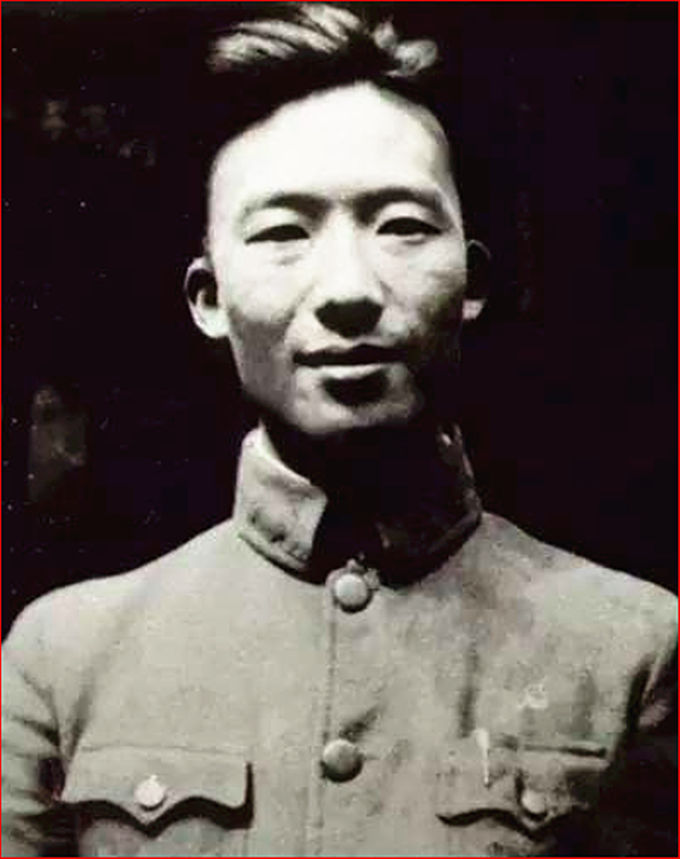 |
|
|
|
| |
年轻的光未然先生 |
|
|
|
| |
光未然(1913年11月1日—2002年1月28日),原名张光年,湖北省光化县(现老河口市)人,中共党员,现代诗人、文学评论家。光未然曾任中国作家协会书记处书记、中国作家协会党组书记。并被选为第三、第五届全国人民代表大会代表,中国共产党中央顾问委员会委员、中国作家协会副主席。
在他89年的人生岁月中,经历了颠沛流离、激昂奋进、风华正茂的青年时代,他一生笔耕不辍,每天记日记,他开蒙甚早,并利用一切机会学习外语、中国古典文学,如诗经、楚辞、古代文论、文字学等,并潜心研究戏剧、音乐,阅读了大量外国文学名著和社会科学方面的著作。他创作了组诗《黄河大合唱》《五月的鲜花》《屈原》等诗作;在身患多种病痛的晚年,他关心青年作家的创作,并完成了厚重的古典文学研究成果《骈体语译文心雕龙》,之后由上海书店出版社出版,实现了他40年的心愿。1927年在家乡参加第一次国内革命战争,同年加入中国共产主义青年团。这次革命失败后,曾做过商店学徒、书店店员和小学教员。2002年光未然在完成了《张光年文集》的编审工作后,于2002年1月28日在北京辞世,享年89岁。
|
|
|
|
| |
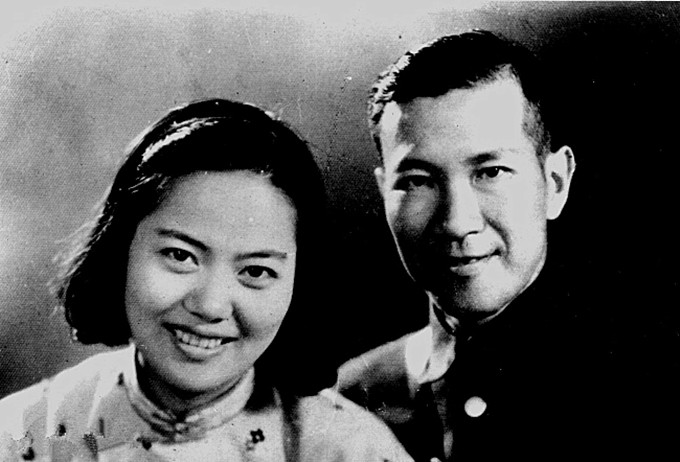 |
|
|
|
| |
冼星海与钱韵玲钱韵玲的照片 |
|
|
|
| |
1938年1月末,著名教育家、社会活动家钱亦石去世,而他的女儿钱韵玲就是今天的女主人公。钱父去世后,他早前的学生冼星海听闻十分悲痛,专门赶来吊唁,并写了一首挽歌,想要在钱老师追悼会上让歌咏队咏唱。写好后便让歌咏队的派一个人来取歌谱,而来的人正是钱韵玲。
钱韵玲接过歌谱,看了几眼,心中越发难过,泪水再也止不住,如下雨般落了下来。此时冼星海并不知面前的姑娘是钱老师的女儿,自然被这突如其来的哭泣给吓到了,急忙上前安慰和询问,这才知道。从那以后他们的缘分算是真的开始了。
而早前之前,钱韵玲就知道冼星海,还是冼星海的迷妹,两人认识后因为钱老师这一层关系,便经常来往,加上他们对音乐、对艺术有相同的追求,感情也在急速发生变化,不久便确定了恋爱关系,紧接着就结婚了,从见面到结婚不过半年时间,结婚时,冼星海34岁,钱韵玲24岁。 |
|
|
|
| |
Famous
educator and social activist qian yishi died in late January
1938, and his daughter qian yunling is the heroine today.When
qian's father died, xian xinghai, one of his former students,
was so grieved that he came to pay his respects and wrote a
dirge to be sung at the memorial service.After finishing
writing, he asked the singing team to send a person to get the
music, and the person who came was none other than qian yunling.
Qian yunling took the music and looked at it for a few times.
She felt more and more sad, and her tears fell down like rain.At
this time xian xinghai and do not know in front of the girl is
the daughter of the teacher, naturally by this sudden cry to be
scared, hurried to comfort and ask, this just know.From then on
their relationship really began.
And earlier, before the Qian Yunling know xian, xian xinghai
seduction, because money teacher after two people know this
relationship, often contact, combined with their music, the
pursuit of art has the same feelings are also rapidly changing,
soon to determine the relationship, and then get married, from
meet to get married but half a year, got married, he 34, yun
ling, a 24-year-old. |
|
|
|
| |
 |
|
| |
冼星海和音乐界的朋友们 |
|
|
|
| |
 |
|
| |
冼星海和同志们在延安窑洞前 |
|
|
|
| |
为了达到“乐不惊人死不休”的艺术效果,星海对《黄河大合唱》中的“黄河怨”、“黄河颂”进行了无数次的修改,虚心听取专家和群众的意见。
首次演出的日子到来了,毛泽东和延安官兵、人民一道观看了演出,激动人心的音乐使人热血沸腾,《黄河大合唱》获得了空前的成功。毛泽东给予了冼星海很高的评价:你的手一动是千军万马的歌声。
演出后召开的总结大会上,大家各抒已见,多数同志都认为艺术感染力强,但也有个别人觉得“黄河怨”的女声独唱太过沉重。因此一时间差点被叫停演。星海表示尊重上级决定。
不久,星海向党组织表达了自己加入中国共产党的意愿。
回到窑洞,韵玲告诉星海毛主席送给星海一支“派克”钢笔和一瓶墨水,星海深受鼓舞,发誓要写出更多更好的作品。
星海光荣加入了中国共产党,他和韵玲的爱情结晶也在孕育之中……
周恩来来到了延安,向入党的星海表示祝贺的同时,还表达了自己对“黄河怨”的好评,称之为“哀中有愤,愤中有情”的好作品,并下令解除了停演令。
星海再一次登上了指挥《黄河大合唱》演出的舞台。歌声中,周恩来写下了如下两句:“为抗战发出怒吼,为大众谱出呼声”。
这时,星海和韵玲爱的结晶妮娜来到了人间,毛泽东邀请星海一家三口到自家作客,为即将到苏联为电影配乐,同时为八路军作抗日宣传的星海饯行。
一九四五年,星海病逝于克里姆林宫医院。 毛泽东写下了“为人民的音乐家冼星海致哀”一行寄托哀思的大字。星海精神长存人间…… |
|
|
|
| |
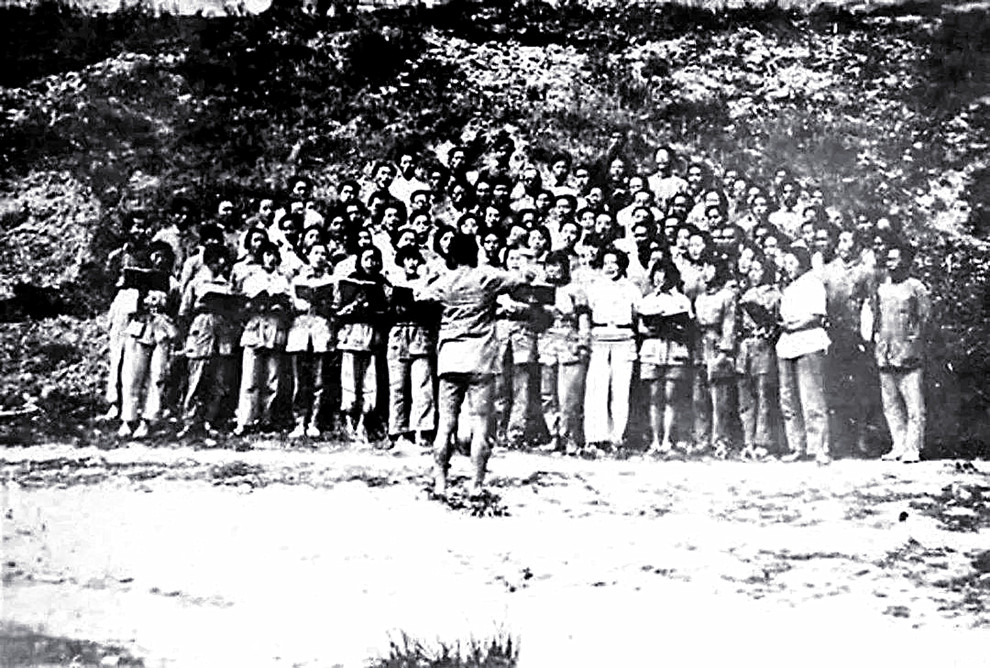 |
|
| |
星海指挥延安鲁艺师生合唱队排练《黄河大合唱》(1939年)。 |
|
|
|
| |
Xinghai directed the
choir of yan 'an lu art teachers and students to rehearse the
Yellow River chorus (1939) |
|
|
|
| |
In
order to achieve the artistic effect of "no shocking music",
xinghai has made numerous revisions to "Yellow River complaints"
and "Yellow River ode" in the "Yellow River chorus", and humbly
listened to the opinions of experts and the public.The first day
of performance came, MAO zedong and yan 'an officers and men,
the people together to watch the performance, exciting music
makes people excited, "the Yellow River chorus" was an
unprecedented success.MAO zedong gave xian xinghai a high
evaluation: your hand movement is the song of thousands of
troops and horses.At the summary meeting held after the
performance, everyone expressed their opinions. Most of the
comrades thought that the artistic appeal was strong, but some
people thought that the female vocal solo of "Yellow River
resentment" was too heavy.So it was almost called off.Xinghai
expressed respect for the decision of the superior.Soon, xinghai
expressed his willingness to join the communist party of China
to the party organization.Back in the cave, yunling told xinghai
chairman MAO gave xinghai a "parker" pen and a bottle of ink,
xinghai was inspired, vowed to write more and better
works.Xinghai glorious joined the communist party of China, the
love child that he and yun ling are also in gestation...< / p >
< p > zhou enlai came to yan 'an, to join the party xinghai
congratulations at the same time, but also expressed his praise
of the "Yellow River resentment," as "there is anger in sorrow,
anger in love" good works, and ordered to lift the suspension
order.Xinghai once again took the stage to conduct the
performance of the Yellow River chorus.In the song, zhou enlai
wrote the following two sentences: "for the war of resistance
issued a roar, for the mass spectrum out of the voice."At this
time, xinghai and yun ling love crystallization Nina came to the
world, MAO zedong invited a family of three to their home
xinghai guests, for the upcoming Soviet union for the film
score, at the same time for the eighth route army anti-japanese
propaganda xinghai farewell dinner.In 1945, xinghai died in a
kremlin hospital.MAO zedong wrote a lament for xian xinghai, a
musician of the people.The xinghai spirit lives on... |
|
|
|
| |
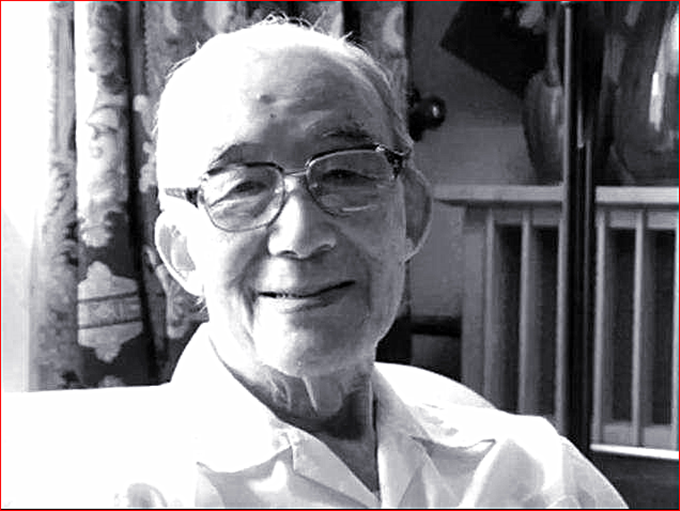 |
|
|
|
| |
光未然先生晚年克服病痛,完成了厚重的古典文学研究成果《骈体语译文心雕龙》 |
|
|
|
| |
Guangwei-ran (November 1, 1913 -- January 28, 2002), formerly
known as zhang light-year, was a member of the communist party
of China (CPC) and a modern poet and literary critic.He was once
the secretariat secretary of the Chinese writers association
(cwa) and the party secretary of the Chinese writers association
(cwa).He was elected a deputy to the third and fifth National
People's Congress, a member of the CPC central advisory
committee and vice-chairman of the Chinese writers association.
In his 89 years of life, to experience the drift from place to
place, passionate endeavor in his youth, his life writing life
ceaseless, keep a diary every day, he began very early, and make
use of every chance to learn a foreign language, Chinese
classical literature, such as the book of songs, chu ci,
philology, ancient literary theory, etc., and studying drama,
music, reading a lot of foreign literature works and the social
sciences.He composed the poems "Yellow River chorus", "may
flowers", "qu yuan" and other poems;Suffering from a variety of
diseases in his later years, he cared about the creation of
young writers, and completed the heavy classical literature
research achievement "parallel style language translation heart
diao long", which was later published by Shanghai bookstore
publishing house, realizing his 40-year dream.He took part in
the first civil revolutionary war in his hometown in 1927 and
joined the communist youth league of China in the same
year.After the failure of the revolution, he worked as a shop
apprentice, a bookstore clerk, and an elementary school
teacher.He died in Beijing on January 28, 2002, at the age of
89, after finishing the editing of the anthology of zhang
light-year.
|
|
|
|
| |
|
|
| |
 |
|
| |
|
|
|
|
| |
严良堃先生1923年出生于湖北武昌,曾随音乐大师冼星海学习指挥,并自学乐理与和声学。抗日战争爆发后即参与到“救亡歌咏运动”中,开始了对指挥艺术,尤其是合唱指挥艺术的研究与实践。1940年,年仅17岁的严良堃指挥“孩子剧团”公演《黄河大合唱》,在此后的半个多世纪中,他成为这部中国音乐史不朽杰作当之无愧的权威诠释者。
1949年,严良堃开始在刚刚创建的中央音乐学院任教,并担任学校青年工作团合唱指挥。1954年,他公派赴苏联深造,在柴科夫斯基音乐学院指挥系主修管弦乐与合唱指挥。在新中国成立十周年之际,严良堃执棒中央乐团(现中国国家交响乐团)完成了贝多芬《第九号交响曲》的中国首演,成就了中国古典音乐发展史上里程碑式的一刻!
在此后的半个多世纪中,严良堃先生在演出与教学方面倾注了极大的心血,作为“奠基者”的角色赴全国各大城市与院校举办教学讲座与合唱排演。1986年,他发起创办“中国合唱指挥协会”(现中国合唱协会),也已经成为中国合唱事业发展中的重要基石。
2013年,中国合唱协会授予他中国合唱“终身成就奖”;2015年,国际合唱联盟授予他世界合唱“终身成就奖”。
|
|
|
|
| |
Karl
Richter Mr. Yan liangkun was born in wuchang, hubei
province in 1923. He studied conducting with music
master xian xinghai and taught himself music theory
and acoustics.After the outbreak of the war of
resistance against Japan, he participated in the
"song for national salvation" and began to study and
practice the art of conducting, especially the art
of conducting chorus.In 1940, when he was only 17
years old, yan liangkun directed the children's
troupe to perform the Yellow River chorus. In the
following half a century, he became the
authoritative interpreter of this masterpiece in the
history of Chinese music.
In 1949, yan liangkun began to teach in the newly
established central conservatory of music and served
as the chorus conductor of the youth work group.In
1954, he was sent to the Soviet union for further
study, majoring in orchestral and choral conductor
in the conductor department of the Tchaikovsky
conservatory.On the occasion of the 10th anniversary
of the founding of the People's Republic of China,
yan liangkun led the central orchestra (now China
national symphony orchestra) to complete the Chinese
premiere of Beethoven's symphony no. 9, marking a
milestone in the history of Chinese classical music.
In the following half century, Mr. Yan liangkun has
devoted great efforts to performance and teaching,
and as the "founder", he has held teaching lectures
and chorus rehearsals in various cities and colleges
in China.In 1986, he initiated and founded "China
choral conductor association" (now China choral
association), which has become an important
cornerstone of the development of choral career in
China.
In 2013, he was awarded the "lifetime achievement
award" by the Chinese chorus association.In 2015,
the international choral union awarded him the world
choral "lifetime achievement award". |
|
|
|
| |
|
|
|
|
| |
冼星海《黄河大合唱》演出:中國中央樂團、指挥:严良堃
|
|
|
|
| |
|
|
|
|
| |
未得原作者编者授权严禁转载www.mt77.com任何内容 |
|
|
|
|
|
|
|
|
|
|
|
|
|
|


